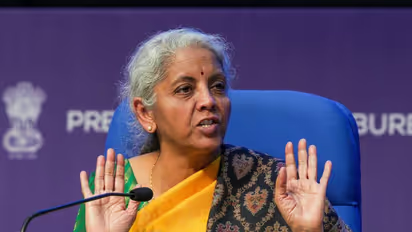Why Budget 2023 proposals are bittersweet for India's super-rich

Synopsis
The highest surcharge rate of 37 per cent, which was applicable on those individuals with income above Rs 5 crore, has been brought down to 25 per cent.
The Budget 2023-24 proposes lowering India's highest income tax rate to 39 per cent, from 42.74 per cent, by reducing the surcharge applicable to high net-worth individuals.
Finance minister Nirmala Sitharaman on Wednesday proposed to tweak the new income tax regime, which was initially introduced in the 2020-21 fiscal but had not received much traction, by raising the basic exemption limit and simplifying the tax slabs.
The maximum surcharge rate, which was 37 per cent and applied to people with incomes beyond Rs 5 crore, has been reduced to 25 per cent. This means that starting on April 1, 2023, a 25 per cent surcharge would apply to all income beyond Rs 2 crore.
In her 2023-24 budget speech, Sitharaman said the highest tax rate in the country is 42.74 per cent. "This is among the highest in the world. I propose to reduce the highest surcharge rate from 37 per cent to 25 per cent in the new tax regime. This would result in reduction of the maximum tax rate to 39 per cent," Sitharaman said.
The finance minister has also admitted that the effective tax rate on HNIs is relatively high compared to other nations, according to Sandeep Sehgal, Partner-Tax at AKM Global.
"Hence, this is a very good step. Although, it is applicable for HNIs opting for the new tax regime only but in all likelihood, the new tax regime would suit the HNIs more. However, there is scope for reducing it further to encourage income and wealth generation," Sehgal said.
Currently, a 10 per cent surcharge on income tax is levied if income is between Rs 50 lakh and Rs 1 crore, 15 per cent on income ranging from Rs 1 crore to Rs 2 crore, 25 per cent on the income range of Rs 2 crore to Rs 5 crore, and 37 per cent in case the income is above Rs 5 crore.
The 37 per cent surcharge under the new tax regime has been eliminated in the Budget for 2023–2024. As a result, starting on April 1, all income over Rs 2 crore would be subject to a 25 per cent income tax surcharge.
To encourage taxpayers to move from the old tax system, which allowed them to deduct and exempt investments and expenses like HRA, the new tax system has been updated and made more appealing to taxpayers.
Under the revamped new tax regime, no tax would be levied for income up to Rs 3 lakh. Income of Rs 3-6 lakh would be taxed at 5 per cent; Rs 6-9 lakh at 10 per cent, Rs 9-12 lakh at 15 per cent, Rs 12-15 lakh at 20 per cent and income of Rs 15 lakh and above will be taxed at 30 per cent.
Nangia Andersen India Partner Neeraj Agarwal said the proposed budget amendments might be bittersweet for high net-worth individuals.
"While on one hand, the percentage of surcharge on income above Rs 5 crore, which has been reduced by a whopping 12 per cent to 25 per cent, has been welcomed with open arms, the cap on capital gain tax benefit by way of investment in a new residential property under section 54 and section 54F may prove expensive," Agarwal said.
The Budget has proposed that long-term capital gains from house property over Rs 10 crore will not be exempt from tax even if it is reinvested in new house property.
(With inputs from PTI)
Stay updated with the Breaking News Today and Latest News from across India and around the world. Get real-time updates, in-depth analysis, and comprehensive coverage of India News, World News, Indian Defence News, Kerala News, and Karnataka News. From politics to current affairs, follow every major story as it unfolds. Get real-time updates from IMD on major cities weather forecasts, including Rain alerts, Cyclone warnings, and temperature trends. Download the Asianet News Official App from the Android Play Store and iPhone App Store for accurate and timely news updates anytime, anywhere.